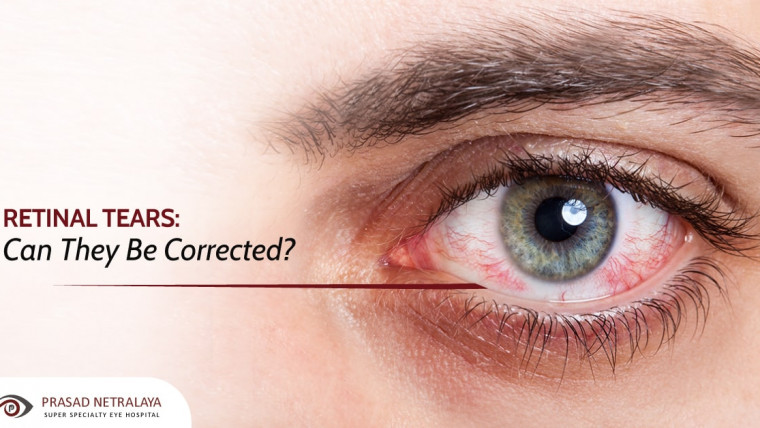Sudden flashes of light, dark shadows creeping across your vision, or a curtain of blurriness descending – these can be warning signs of retinal detachment, a serious eye condition that demands prompt attention.
But what if you could take control of your vision and protect your future? Retinal Detachment Treatment is a crucial aspect of preserving your eyesight, and understanding its causes and symptoms is the first step towards safeguarding your vision.
Let’s get into the details of causes, symptoms, and treatment options for retinal detachment that can help you see the world clearly for years.
Table of Contents
What is Retinal Detachment?
The retina is a thin layer of tissue at the back of the eye that converts light into electrical signals. When the retina detaches from its normal position, it can no longer function properly, leading to vision loss.
Symptoms of Retinal Detachment
Recognizing the symptoms of Retinal Detachment is crucial for prompt treatment. Look out for:
- Sudden Flashes of Light: Sudden flashes of light in peripheral vision can be a warning sign of retinal detachment.
- Floaters: A sudden increase in floaters, or small dark spots that float in your vision, can indicate retinal detachment.
- Blurred Vision: Blurred or distorted vision, or a shadow or curtain descending over your vision, can be a symptom of retinal detachment.
Causes of Retinal Detachment
Retinal detachment can be caused by various factors, including:
- Aging: As we age, the vitreous gel in the eye shrinks, which can cause the retina to detach.
- Injury: A blow to the head or eye can cause retinal detachment.
- Diabetes: Diabetic retinopathy can increase the risk of retinal detachment.
How Experts at Prasad Netralaya Perform Retinal Detachment Treatment?
Here’s how experts at Prasad Netralaya perform Retinal Detachment Treatment using advanced diagnostics and treatment techniques:
Treatment Options
1. Pneumatic Retinopexy: Gas is injected inside the eye and position is given to make retina attach and then laser will be done around the tear
2. Vitrectomy: MIVS sutureless surgery will be done , where vitreous gel is removed, retina is attached . Recovery time is much quicker compared to previous surgeries around 1 to 2 weeks
3. SCleral Buckle: Belt like tamponade is put around the eye without going inside the eye and retina is settled especially in young adults
Related blog: Expert Retina Treatments at Prasad Netralaya: Restoring Vision.
Treatment Approach
At Prasad Netralaya, our expert retina specialists use advanced diagnostic and treatment techniques to provide personalized care. They address each patient’s unique condition and severity, employing state-of-the-art technologies to restore vision and enhance quality of life.
Related blog: A Complete Guide to Care Your Eyes After Retinal Detachment Surgery.
Why Choose Prasad Netralaya for Retinal Detachment Treatment?
At Prasad Netralaya, we’re committed to delivering exceptional care and results. Here’s why we’re the top eye hospital for retina surgery:
- Expert Team
- State-of-the-Art Facilities
- Comprehensive Care
Take the First Step Towards Preserving Your Vision!
If you’re experiencing some or severe symptoms of Retinal Detachment, seek medical attention immediately. At Prasad Netralaya, we’re here to help.
Book Your Appointment Today and take the first step towards preserving your vision.
Frequently Asked Questions (FAQs)
1. What are the common symptoms of retinal detachment?
Common symptoms include sudden flashes of light, floaters, blurred vision, and a shadow or curtain descending over your vision.
2. Can retinal detachment be treated?
Retinal detachment can be treated with surgery, laser photocoagulation, or other procedures to reattach the retina and restore vision.
3. What causes retinal detachment?
Retinal detachment can be caused by aging, injury, diabetes, or other conditions that affect the retina.
4. Is retinal detachment treatment painful?
Most retinal detachment treatments are performed under local anesthesia, minimizing discomfort and pain.
5. Can retinal detachment lead to permanent vision loss?
Yes, if left untreated, retinal detachment can cause permanent vision loss. Prompt treatment is essential to preserve vision.
Dr. Vikram Jain, M.S. had his medical training (MBBS) from Kasturba Medical College, Mangalore, India. He did his master’s in Ophthalmic surgery from Kasturba Medical College, Manipal. He currently manages the Glaucoma department of Prasad Netralaya hospital.



